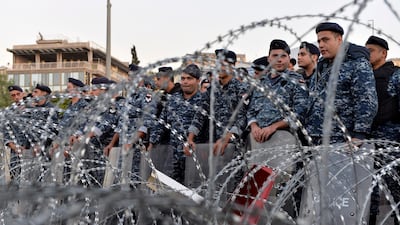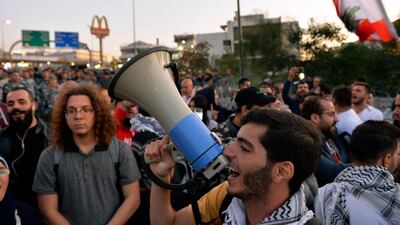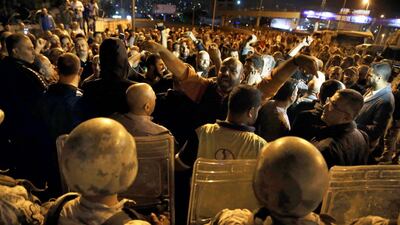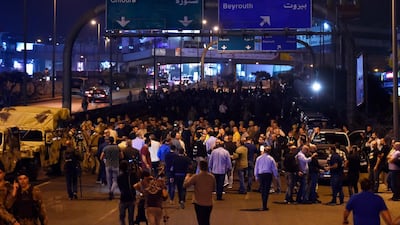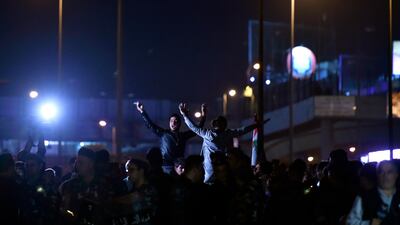The financial crisis in Lebanon is having a huge spillover effect on Syria, contributing to a plummeting Syrian pound and depriving the regime in Damascus from its main access to the international financial system.
The Syrian pound, the lira, was trading at 765 to the dollar in Damascus on Wednesday compared with 630-640 at the start of the uprising in Lebanon on October 17.
Just before the Syrian revolt in March 2011, the lira was trading at 50 to the dollar.
Balance-of-payment imbalances, money printing and other “structural” factors in Syria have been behind the botching of its currency, said Jihad Yazigi, publisher of the Syria-Report, an on-line economic and business newsletter.
But the collapse accelerated in recent weeks because of a de facto shutdown of Lebanon's financial sector, Mr Yazigi told The National from Beirut.
“Lebanon is a major source of foreign currency for Syria and when there is no dollar in Lebanon the dollar in Syria becomes even scarcer,” Mr Yazigi said.
Banque du Liban, the central bank of Lebanon, imposed capital controls in the past weeks to prevent a run on deposits in the country, which has a public debt one-and-half times bigger than its economy.
International rating agencies have consecutively downgraded Lebanon’s debt since February, deepening fears that the government would no longer be able to pay its creditors.
The debt was already rated as junk before the downgrades.
Depositors, many of whom Syrians, have not been able to access most of the money in their accounts because of the control measures.
One Syrian blue-collar depositor, who declined to be named, said he has all of his life’s savings -- about $250,000 -- in a Lebanese bank, deposited at a branch in Shtoura near the Syrian border. He is only allowed to withdraw $300 a week.
“Lebanese banks are burning us,” he said from Damascus.
The authorities in Beirut do not publish the nationalities of depositors or their numbers. The latest data released by the Association of Banks in Lebanon said Lebanon’s 65 banks combined had $177.3 billion in deposits at the end of August, before the Lebanese uprising.
Lebanon has been a sanction-busting hub for the Syrian regime since the US and the European Union started imposing punishments on President Bashar Al Assad and his associates in 2011 for the regime’s crackdown on the revolt.
Whole sectors and dozens of Syrian state organisations and many businesses are under sanctions.
Since the Baath Party came to power in 1963 and imposed a Soviet style command economy, Lebanon has been a smuggling base into Syria and a major source of employment for its labour.
A limited opening in Syria’s economy occurred under Bashar Al Assad but Lebanon remained an economic hub for Syria.
The Syrian regime and its associates continued to rely on Lebanese business agents to stay out of the spotlight. Their role has increased since 2011, with Lebanon becoming a major source for fuel and commodities into Syria.
Mr Yazigi said a cancellation two weeks ago of a tender by the Damascus government to buy 150,000 tonnes of wheat appears to be related to the financial restrictions in Lebanon, adding that such tenders are usually awarded to the regime’s associates.
Lebanon’s currency has also weakened, but not as much as the Syrian pound. On the black market in Beirut, the Lebanese pound, also called the lira, is trading above 2,000 to the dollar, compared with a 1,500 peg that Banque du Liban had abandoned.
Aref Dalila, a prominent Syrian economist who lives in exile in Dubai, said even if the financial crisis in Lebanon had not occurred, a fundamental factor behind Syria’s currency woes is its government.
“If you bring the greatest financial mind in the world to Syria he or she will not be able to do anything,” Mr Dalila said.


